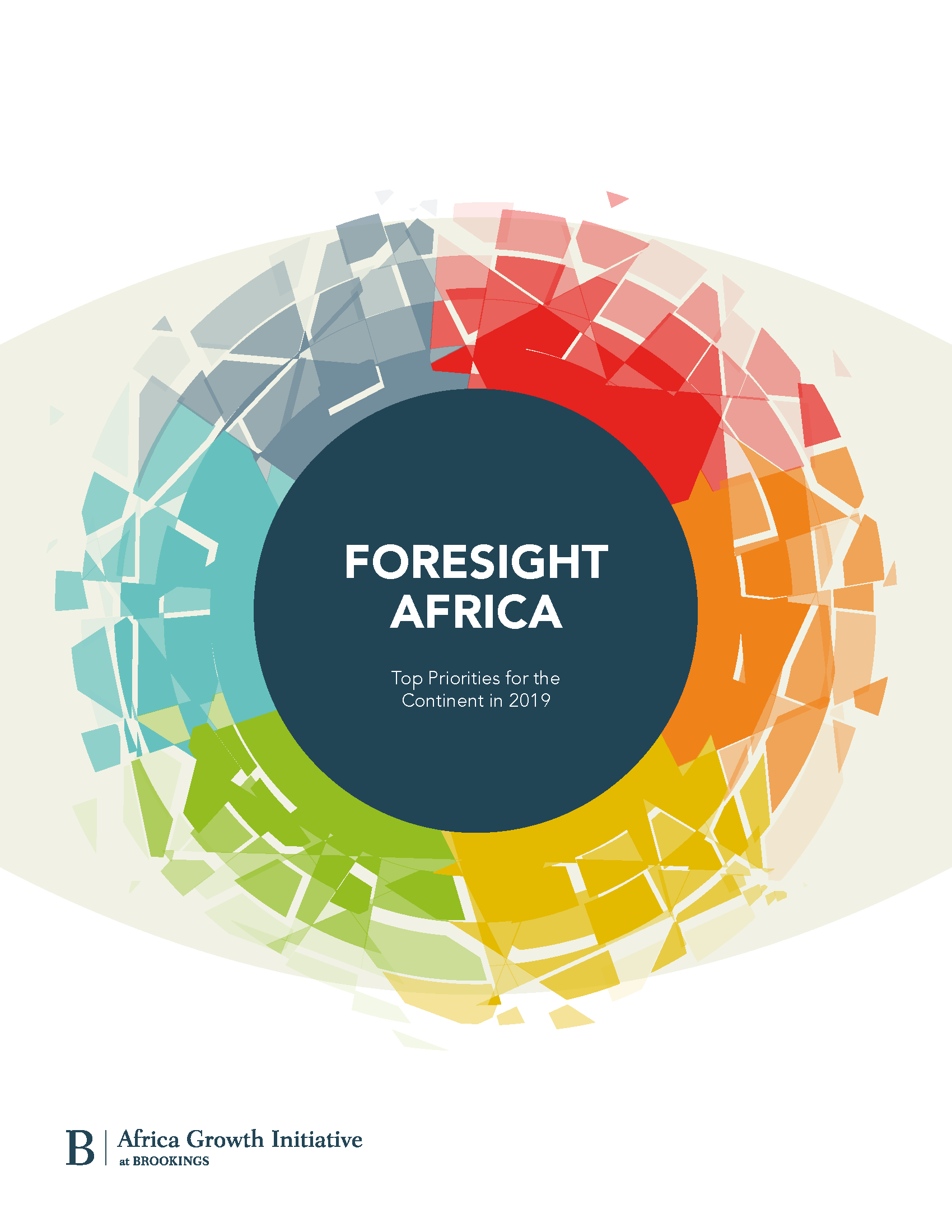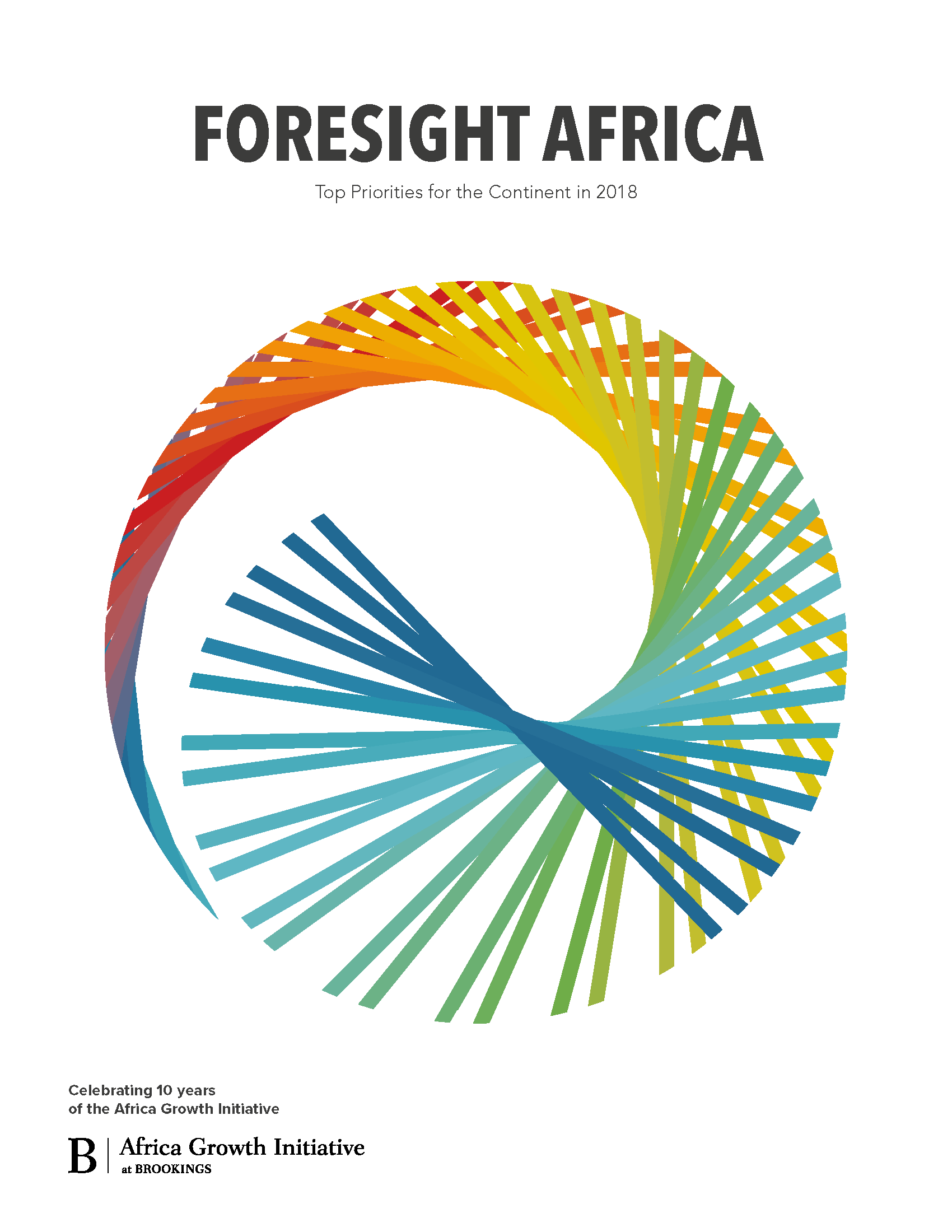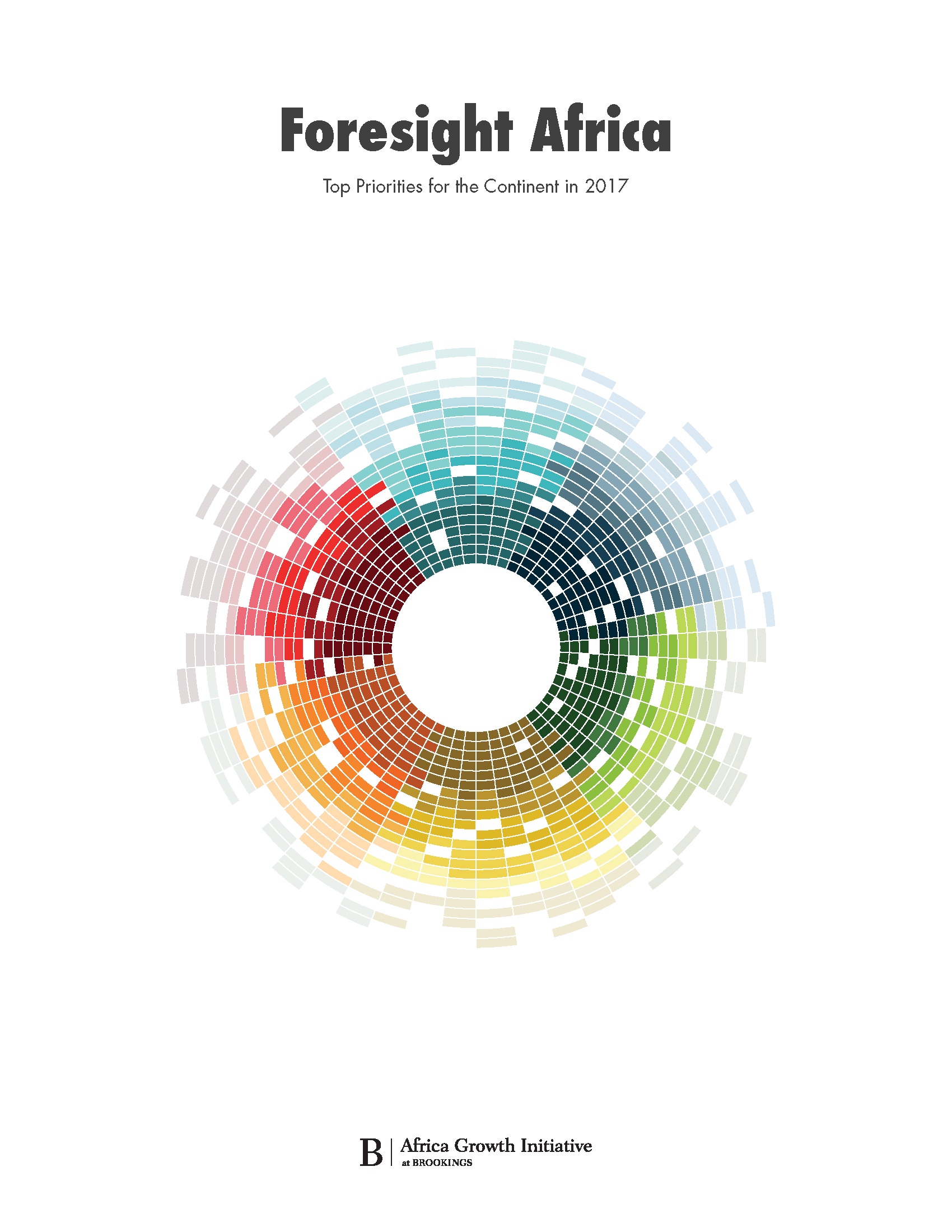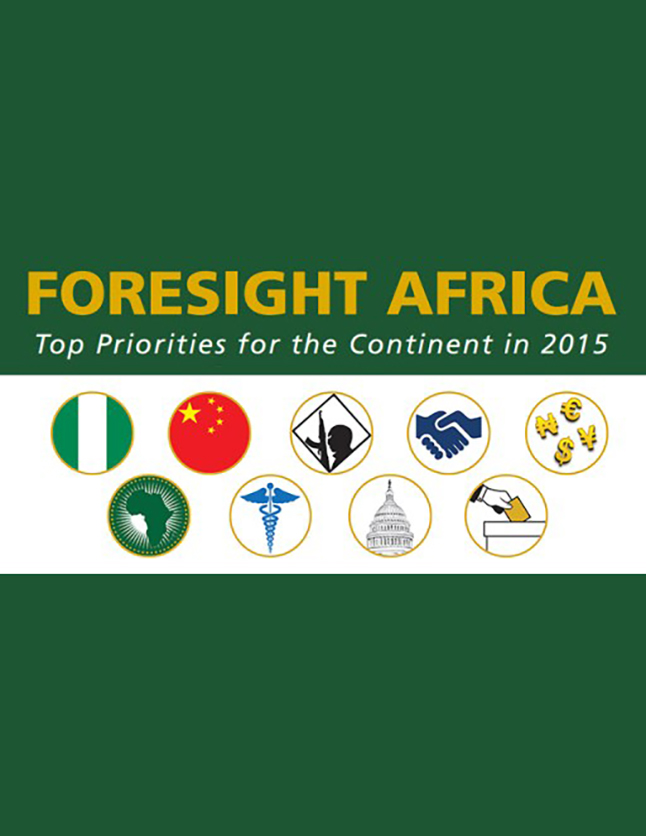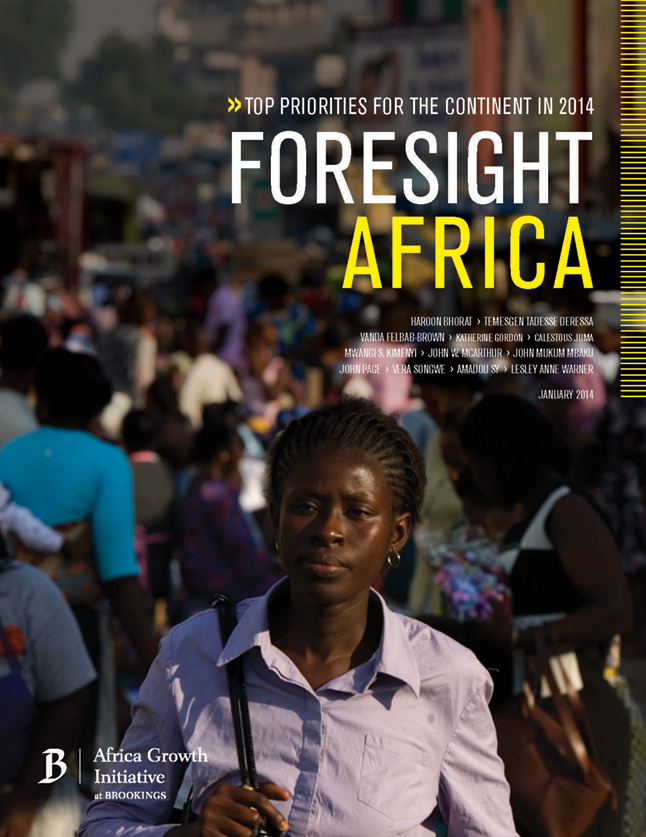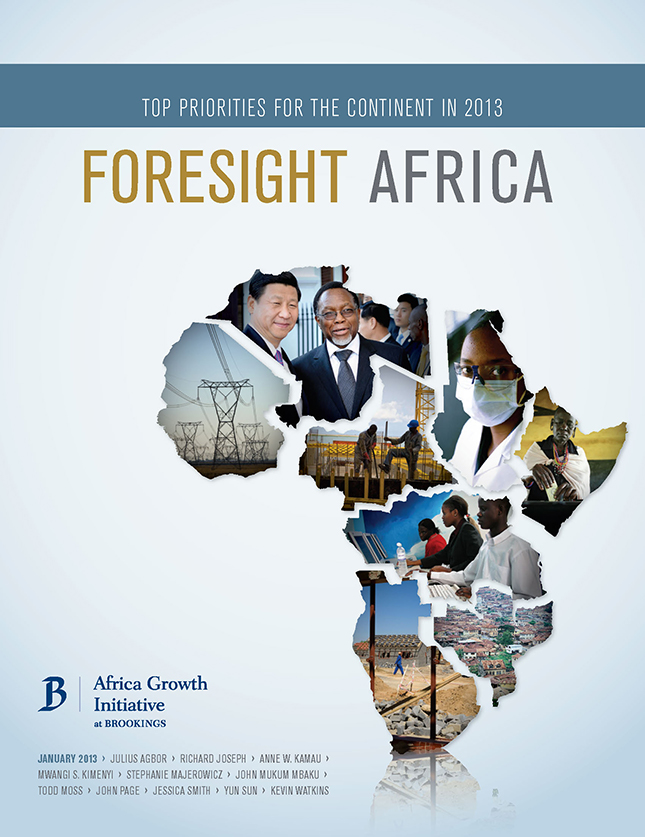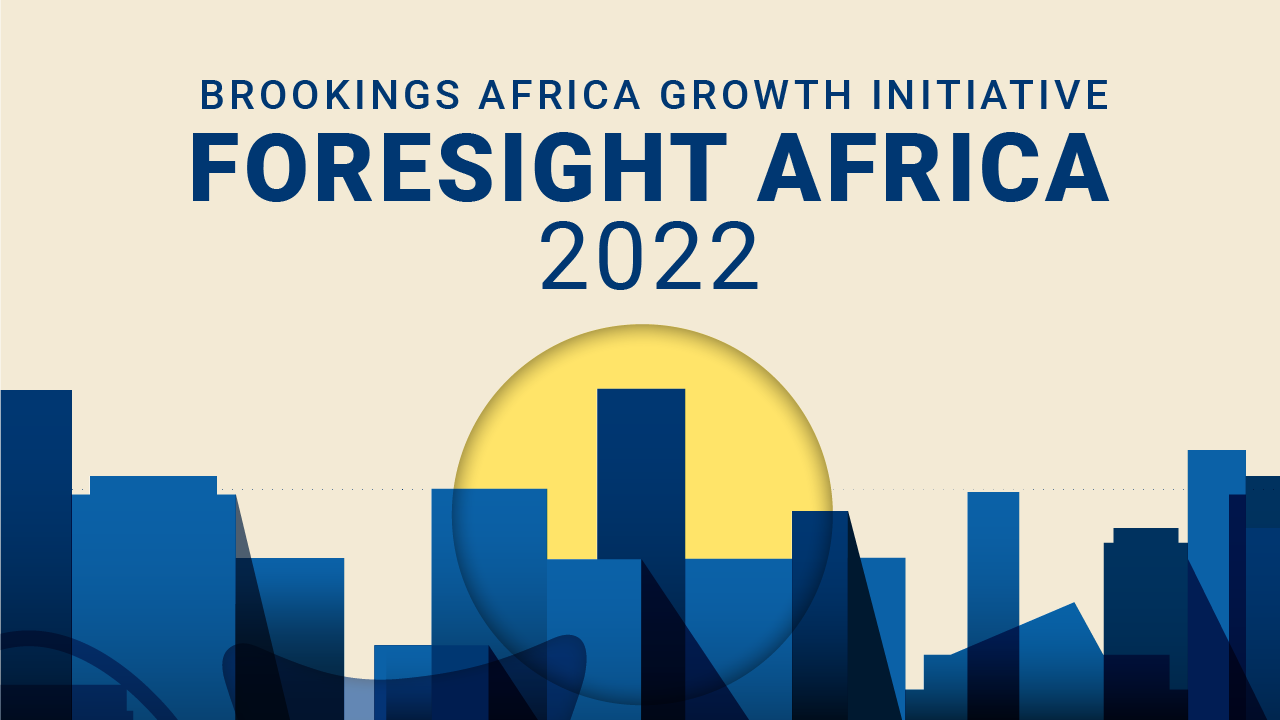Foresight Africa
2022
Upcoming Event
Foresight Africa:
Top priorities for Africa in 2022
On January 26, AGI will host a Foresight Africa launch featuring a high-level panel of leading Africa experts to offer insights on regional trends along with recommendations for national governments, regional organizations, multilateral institutions, the private sector, and civil society actors as they forge ahead in 2022.
Report Overview
With this and every iteration of Foresight Africa, we aim to capture the top priorities for the region in the coming year, offering recommendations for African and global stakeholders for creating and supporting a strong, sustainable, and successful Africa. In doing so, we hope that Foresight Africa 2022 will promote a dialogue on the key issues influencing development policy and practice in Africa during the upcoming year. Such ideas will ultimately provide sound strategies for sustaining and expanding the benefits of economic growth to all people of Africa in the years ahead.
Browse through the chapters belowAfrica’s economic recovery:
Financing robust post-pandemic growth
In Chapter 1, our authors share reasons for confidence in Africa’s economic recovery and offer strategies for boosting financing to protect and enhance the economic gains of recent decades. The region’s entrepreneurial youth, technological revolution, sustained investments, recent economic successes, and promise of its “latent assets” all contribute to the positive trajectory the region is witnessing despite the emergence of COVID-19 variants that threaten to set the region back.
Read Chapter 1Viewpoints
Africa’s youth are already leading the way to economic success Philanthropy plays a vital role in meeting development challenges and mitigating crises in sub-Saharan Africa Managing COVID-19 response public resources with accountability in Africa Africa’s latent assets Addressing Zimbabwe’s inflation: The role of the digitalization of financial transactions Investment in science and technology is key to an African economic boom Zambia’s success will be Africa’s successPublic health:
Ensuring equal access and self-sufficiency
Indeed, much of Africa’s economic recovery hinges on the world’s ability to contain this virus in the long term—as we saw late last year in the reactive travel bans that punished Africa for the omicron variant already circulating around the globe. Clearly, national economies can only have robust growth if both the global economy and their populations are healthy. For this reason, we dedicate Chapter 2 to strategies for preparing Africa’s health systems to be self-sufficient for tackling both current and future health crises as well as exploring strategies to achieve global health equity.
Read Chapter 2Viewpoints
Africa’s just energy transition could boost health outcomes How strengthened political engagement can lead to improved health outcomes in Africa What’s next for R&D in health for Africa? The future of vaccine manufacturing in Africa Strategies for financing Africa’s health sector Paying for the malaria vaccine: Will Africa take responsibility? Vaccine inequity: Ensuring Africa is not left outAfrican women and girls:
Leading a continent
Notably, the world has witnessed remarkable leadership under African women when navigating these crises—at a time when recent gains in women and girl’s education, health, and livelihoods have reversed. Africa’s women and girls continue to flex their intellectual and metaphorical muscles across a variety of arenas—in politics, in offices, in the home, in schools, in laboratories, in hospitals, and on the global stage, to name just a few. Thus, in a first-ever decision, this year, we dedicate a full chapter, Chapter 3, to strategies for further empowering African women and girls.
Read Chapter 3Viewpoints
Strategies for advancing African women in academia Women and e-commerce in Africa: The $15 billion opportunity The women of Sudan will not accept setbacks It is not yet Uhuru for the women of Uganda Priorities for advancing women’s equal political leadership in the coming year Making the future of African STEM femaleClimate change:
Tackling a global challenge
Africa has already shown its ability to lead when it comes to tackling the global climate change crisis through shared efforts like the Common Africa Position. It bears repeating that, despite contributing least to the problem, Africa is experiencing the worst effects—not only in increased natural disasters, but also in cascading impacts like migration and decelerated economic growth. Thus, in Chapter 4, our authors show that, through regional solidarity as demonstrated at the recent global climate negotiations at the U.N. Climate Change Summit; successful local and national response to climate mitigation and adaptation; and increased global commitment to climate finance, this challenge does not have to be the insurmountable.
Read Chapter 4Viewpoints
The urgency and benefits of climate adaptation for Africa’s agriculture and food security Climate migration—deepening our solutions Managing existential risk and climate resilience: The case of Nigeria The view from Freetown, Sierra Leone The criticality of climate finance for Africa Addressing Africa’s dual challenges: Climate change and electricity accessTechnological innovations
Creating and harnessing tools for improved livelihoods
Notably, a major tool in tackling climate change and other existential threats is technology. This year, we approach the technological revolution with an eye towards practicality: It is omnipresent, so how can Africa best leverage these new technologies? Thus, in Chapter 5, our authors approach the reality and practicability of technological tools, including cryptocurrencies, improved remittance systems, digital diplomacy, and data governance for long-term socioeconomic gains.
Read Chapter 5Viewpoints
Africa and the future of digital diplomacy Developing an effective data governance framework to deliver African digital potentials The role of cryptocurrencies in sub-Saharan Africa Boosting the AfCFTA: The role of the Pan-African Payment and Settlement System Africa needs smarter investment in digital infrastructure: Strategies for enticing the private sector The private sector must do its part on data governance in AfricaAfrica’s external relations:
Reinventing and pursuing new partnerships
The pandemic exposed holes in the fabric of global collaboration and the vulnerability of Africa to global headwinds. Even before the pandemic, though, African countries were looking to foster more balanced relationships with other parts of the world that understand the region’s challenges and might share their lessons, resources, and political capital for equal economic advancement. Thus, in Chapter 6, our authors consider Africa’s relationships with emerging partners, such as the Association of Southeast Asian Nations, Gulf states, Russia, and others, and examine how those relationships might lead to prosperous futures for all parties.
Read Chapter 6Past Reports
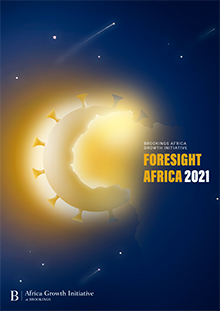
Foresight Africa 2021: Top priorities for Africa in 2021
1.
2.
3.
4.
5.
6.
•
•
•
•
•
•
•
•
•
•
•
•
•
•
•
•
•
•
•
•
•
•
•
•
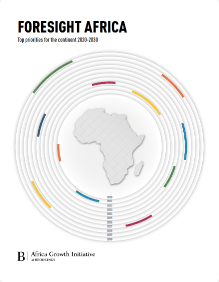
Foresight Africa: Top priorities for Africa in 2020-2030
1.
2.
3.
4.
5.
6.
•
•
•
•
•
•
•
•
•
•
•
•
•
•
•
